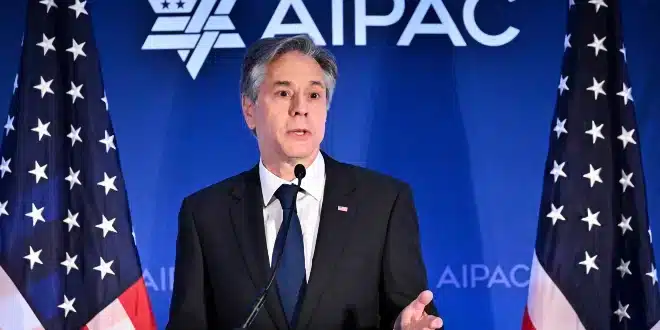U.S. Secretary of State Antony Blinken emphasized on Tuesday that the U.N. Security Council’s recent vote in favor of a U.S.-backed Gaza cease-fire and hostage release proposal clearly indicates global support for the plan. He urged Hamas to accept the proposal, noting, “Everyone’s vote is in, except for one vote, and that’s Hamas,” following his meeting with Israeli officials in Tel Aviv. Prime Minister Benjamin Netanyahu had reaffirmed his commitment to the plan during their meeting on Monday.
Although Hamas initially welcomed President Joe Biden’s announcement of the plan and the U.N. resolution, it has not yet provided an official response. Blinken viewed Hamas’ reaction to the U.N. vote as a “hopeful sign,” but stressed that mediators are still waiting for a definitive response from the group’s leaders in Gaza. “Everyone has said yes, except for Hamas,” he reiterated.
In a separate development, the U.N. human rights office reported potential war crimes committed by Israeli forces and Palestinian militants during a recent Israeli raid that rescued four hostages, which resulted in the deaths of at least 274 Palestinians, according to Gaza’s Health Ministry.
During his eighth visit to the region since Hamas’ October 7 attack on southern Israel ignited the conflict, Blinken focused on garnering support for the cease-fire proposal, facilitating humanitarian aid, and discussing postwar governance plans for Gaza. He met with hostages’ families and demonstrators calling for a cease-fire before traveling to Jordan and was expected to visit Qatar and Egypt, key mediators with Hamas.
The proposal, announced by President Biden last month, outlines a three-phase plan. Initially, Hamas would release the remaining hostages in exchange for a cease-fire and the withdrawal of Israeli forces from Gaza. Currently, Hamas is holding around 120 hostages, a third of whom are believed to be deceased. Although Biden presented the plan as an Israeli initiative, Netanyahu has publicly contested key aspects, insisting that the war will not end without Hamas’ defeat and the return of all hostages.
Hamas has demanded assurances for the implementation of the plan, which it broadly supports. The group previously embraced a similar proposal that Israel rejected. Hamas spokesman Jihad Taha emphasized the need for clarity on implementation by Israel.
On Monday, the U.N. Security Council overwhelmingly approved the proposal, with 14 members voting in favor and Russia abstaining. The resolution calls on both Israel and Hamas to fully implement the terms without delay.
The eight-month war has resulted in over 37,000 Palestinian deaths and the displacement of approximately 80% of Gaza’s 2.3 million residents. Israeli restrictions and ongoing fighting have severely hampered humanitarian aid efforts, causing widespread hunger.
The conflict began on October 7 when Hamas and other militants attacked Israel, killing about 1,200 people and taking around 250 hostages. A previous week-long cease-fire facilitated the release of over 100 hostages in exchange for Palestinian prisoners.
Biden’s proposal includes an initial six-week cease-fire, the release of some hostages, and the withdrawal of Israeli forces from populated areas, allowing Palestinian civilians to return home. The plan also calls for significant humanitarian aid, with up to 600 trucks entering Gaza daily. The second phase aims for a permanent end to hostilities and the full release of hostages, while the third phase involves a comprehensive reconstruction plan for Gaza.
Netanyahu’s conflicting signals reflect his political challenges. His far-right coalition allies oppose the proposal and threaten to topple his government if the war ends without Hamas’ destruction. Yet, there is growing pressure on Netanyahu to accept the deal to bring the hostages home, with widespread demonstrations in favor of the U.S.-backed plan.
The transition from the first to the second phase remains contentious, as Hamas seeks assurances that Israel will not resume the war, while Israel wants to avoid prolonged negotiations that could extend the cease-fire indefinitely without resolving the hostage situation.
Blinken assured that the proposal would lead to an immediate cease-fire and initiate negotiations for a lasting one. “The cease-fire that would take place immediately would remain in place, which is manifestly good for everyone. And then we’ll have to see,” he said.


